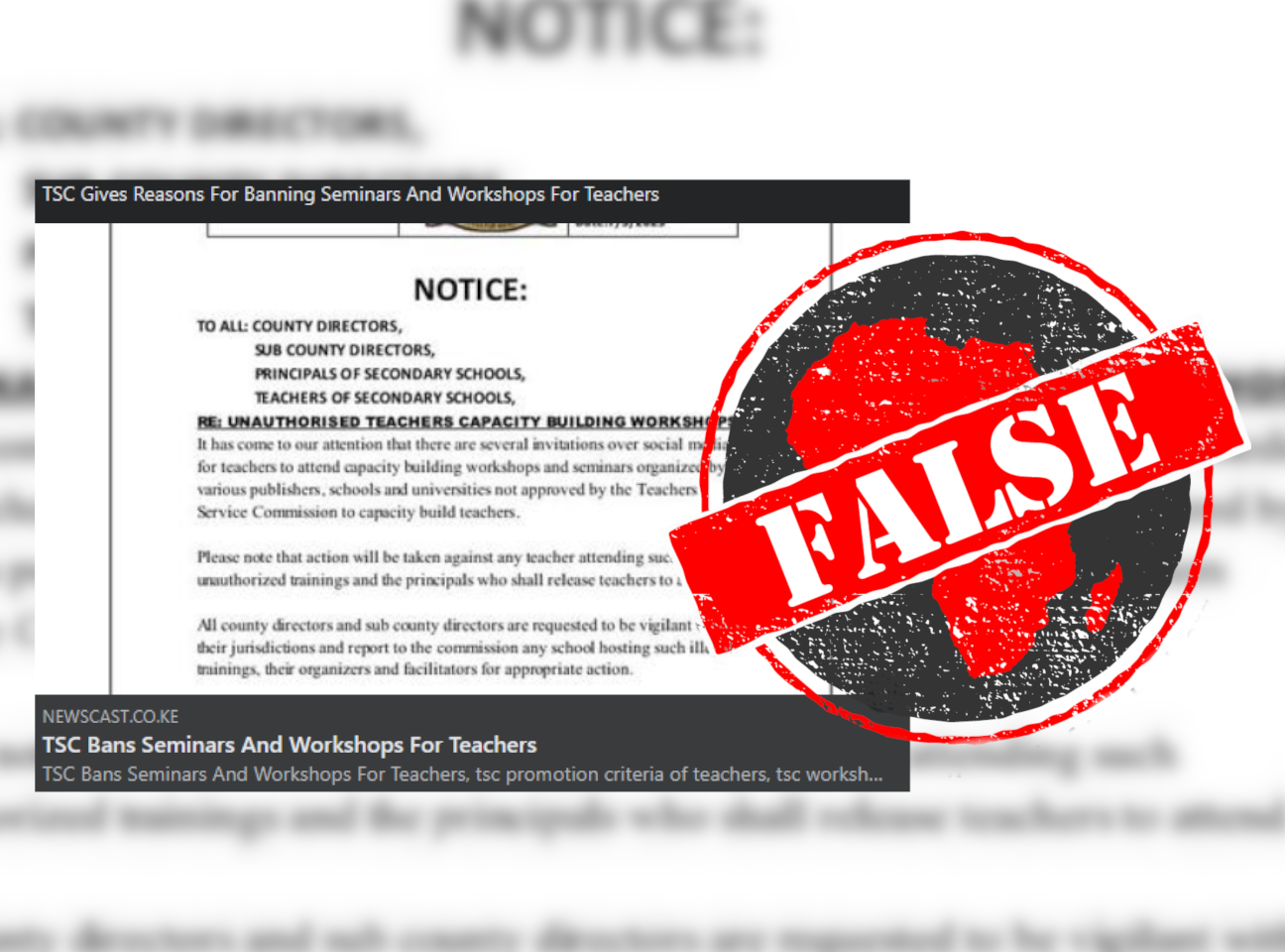IN SHORT: With a new curriculum being introduced in the country, a ban on teachers attending training workshops would raise eyebrows. But this notice is fake and wasn’t issued by the teachers’ employer.
Kenya's largest civil service employer, the Teachers Service Commission (TSC), has banned teachers from attending seminars and workshops.
That's the claim made in an article posted to a public Facebook group.
According to the article, in March 2023 the TSC issued a notice to all county directors, principals and secondary teachers banning attendance at seminars and workshops.
The subject line of the message, also posted directly to Facebook, reads: “UNAUTHORISED TEACHER CAPACITY BUILDING WORKSHOPS”.
“It has come to our attention that there are several invitations over social media for teachers to attend capacity building workshops and seminars organised by various publishers, schools, and universities not approved by the Teachers Service Commission to capacity build teachers,” the notice reads in part.
It warns that “action will be taken against any teacher attending such unauthorised training and the principals who shall release teachers to attend”.
The letter is signed by Nancy Macharia, the TSC's chief executive officer.
Kenya is introducing a new education system called the competency based curriculum. This system tracks each student's progress over a 14-year period, divided into three levels.
As curriculum changes are implemented, teachers in Kenya are required to undergo training.
So is this notice legitimate?

‘Ignore this fake letter’ says commission
The TSC posted the notice on its verified Facebook page, stamped “FAKE”.
“We wish to inform the public to ignore this fake letter being circulated through social media,” TSC Kenya wrote.
Republish our content for free
For publishers: what to do if your post is rated false
A fact-checker has rated your Facebook or Instagram post as “false”, “altered”, “partly false” or “missing context”. This could have serious consequences. What do you do?
Click on our guide for the steps you should follow.
Publishers guideAfrica Check teams up with Facebook
Africa Check is a partner in Meta's third-party fact-checking programme to help stop the spread of false information on social media.
The content we rate as “false” will be downgraded on Facebook and Instagram. This means fewer people will see it.
You can also help identify false information on Facebook. This guide explains how.


Add new comment